Artificial intelligence (AI) is no longer a futuristic fantasy; it’s rapidly becoming an integral part of our daily lives and reshaping industries across the globe. From powering personalized recommendations on our favorite streaming platforms to driving breakthroughs in medical research, AI’s influence is undeniable. Staying abreast of the latest AI trends is crucial for businesses, tech enthusiasts, and anyone curious about the future. Let’s dive into some of the most exciting AI developments happening right now in 2025.
1. The Rise of Generative AI: Creating the Unimaginable
One of the most captivating AI trends is the emergence of generative AI. These powerful models can create original content, including text, images, audio, and even code, based on textual prompts. Tools like DALL-E 2 and Midjourney have captured the internet’s imagination with their ability to generate stunning and often surreal images from simple descriptions. Similarly, large language models like ChatGPT are revolutionizing how we interact with AI, demonstrating remarkable capabilities in generating human-like text for various applications, from content creation to customer service.
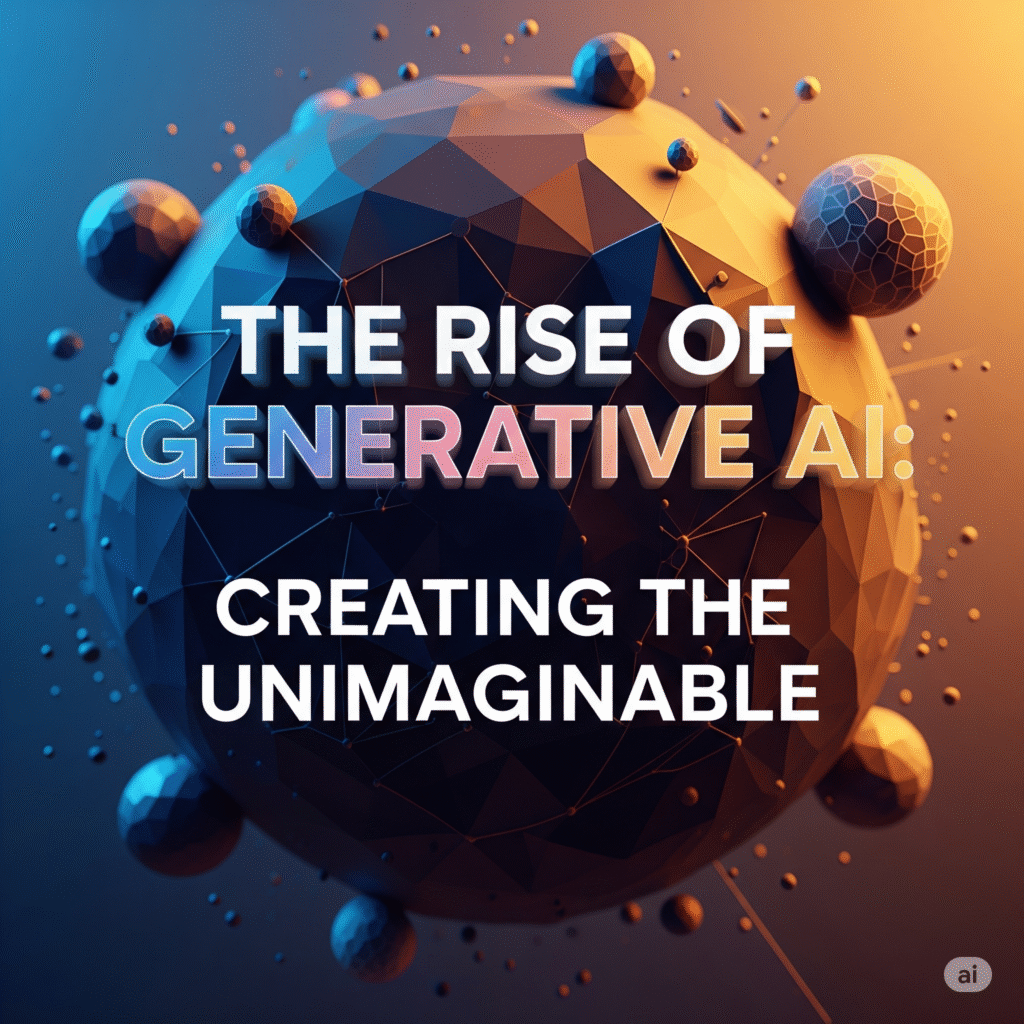
The implications of generative AI are vast, potentially transforming creative industries, software development, and many other fields by democratizing content creation and boosting productivity.
2. AI Democratization: Putting Power in More Hands
Previously, developing and deploying AI solutions often required significant expertise and resources. However, we are witnessing a strong trend towards AI democratization. Platforms and tools are emerging that allow individuals and organizations with limited coding knowledge to leverage the power of AI. No-code and low-code AI development environments are simplifying the process of building and deploying AI models. Additionally, the availability of pre-trained AI models and cloud-based AI services makes it easier and more cost-effective for businesses of all sizes to integrate AI into their operations.
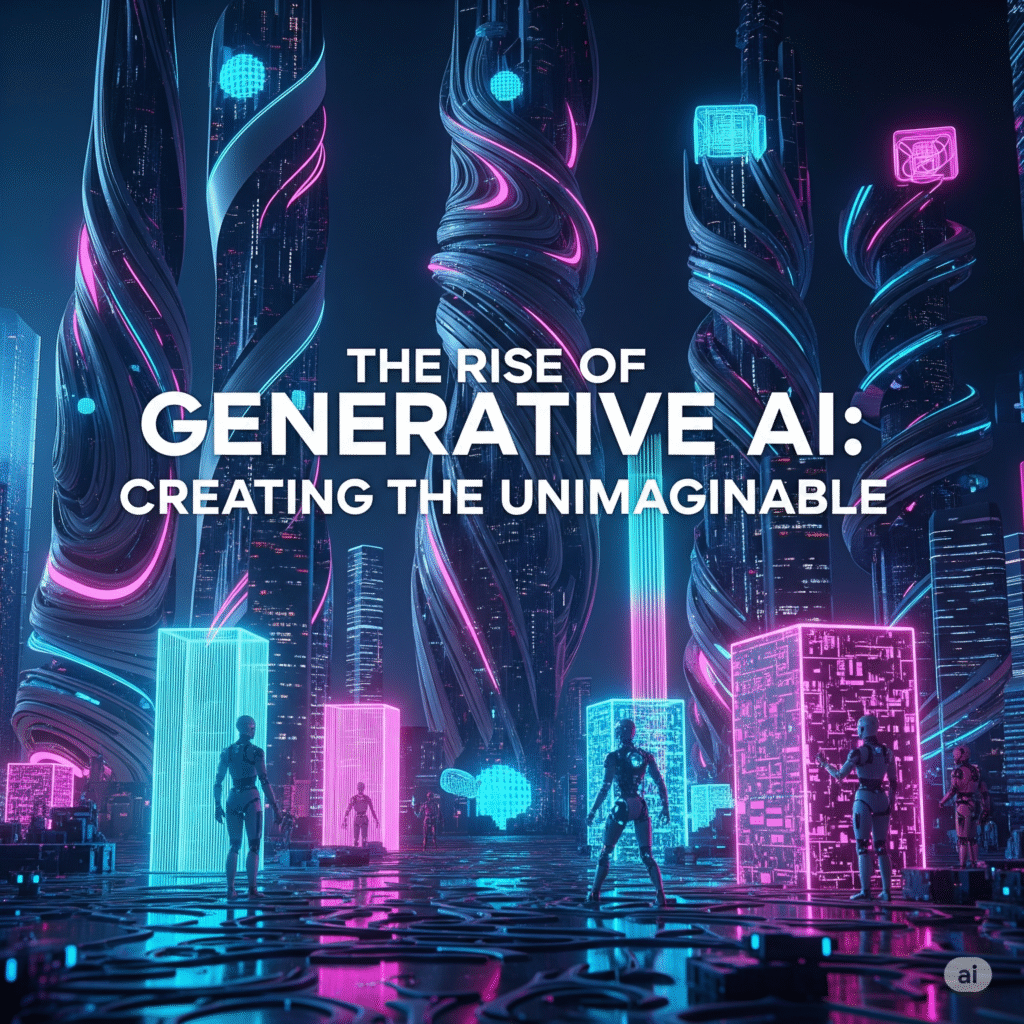
This trend is empowering more people to innovate with AI, leading to a wider range of applications and solutions across various sectors.
3. AI in Healthcare: Revolutionizing Patient Care and Discovery
The healthcare industry is undergoing a significant transformation driven by AI. AI-powered diagnostic tools are assisting doctors in identifying diseases earlier and more accurately through the analysis of medical images and patient data. Machine learning algorithms are accelerating drug discovery by analyzing vast datasets to identify potential drug candidates. Personalized medicine, tailored to an individual’s genetic makeup and other factors, is becoming a reality thanks to AI’s ability to process complex biological information. Furthermore, robotic surgery guided by AI is enhancing precision and minimizing invasiveness.
AI’s impact on healthcare promises to improve patient outcomes, enhance efficiency, and accelerate medical breakthroughs.
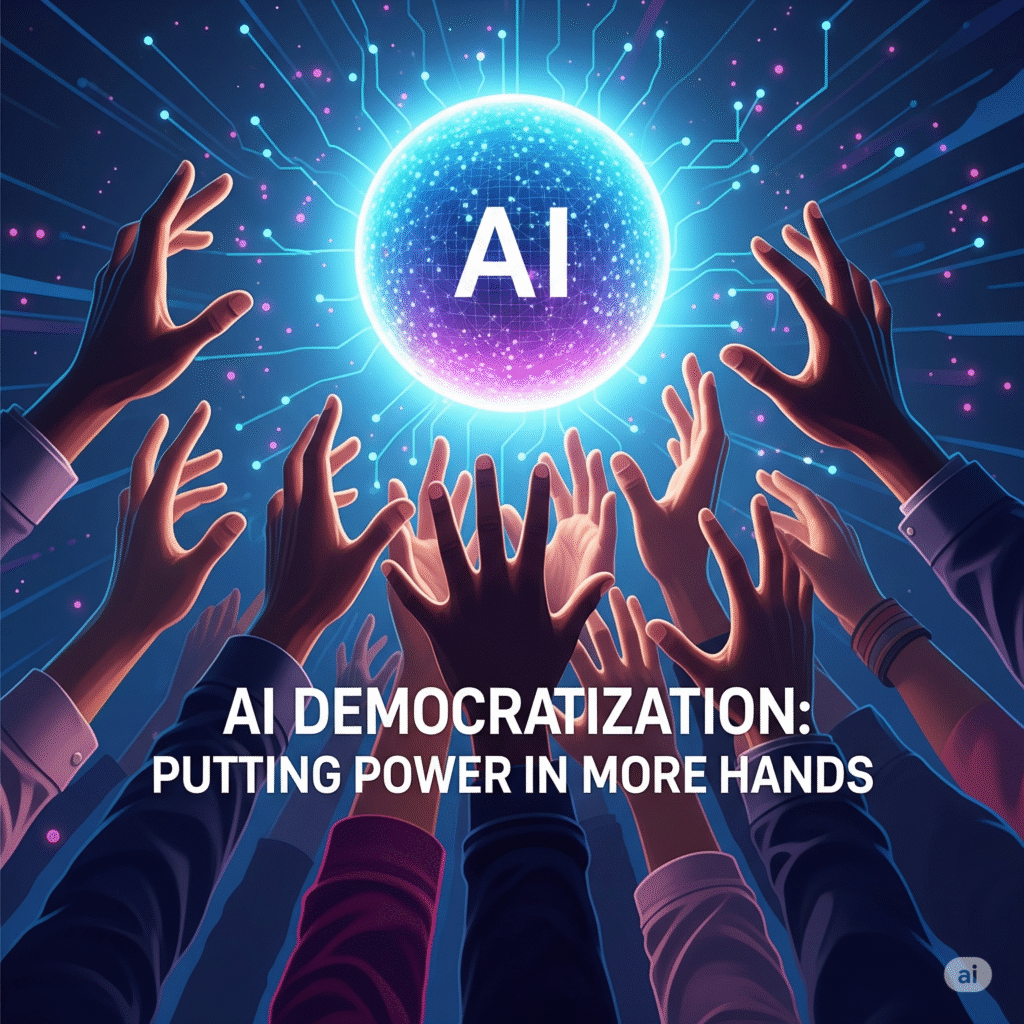
4. The Focus on Responsible and Ethical AI
As AI becomes more pervasive, the focus on responsible and ethical AI is intensifying. Concerns about bias in AI algorithms, which can lead to unfair or discriminatory outcomes, are driving research into developing more equitable AI systems. Data privacy and security are paramount, especially with AI models trained on vast amounts of personal information. Ensuring transparency in how AI models make decisions is also crucial for building trust. There is a growing recognition of the need for regulations and guidelines to govern the development and deployment of AI in a way that benefits society while mitigating potential risks.
Prioritizing ethical considerations is essential for ensuring that AI is developed and used in a way that is fair, just, and beneficial for all.
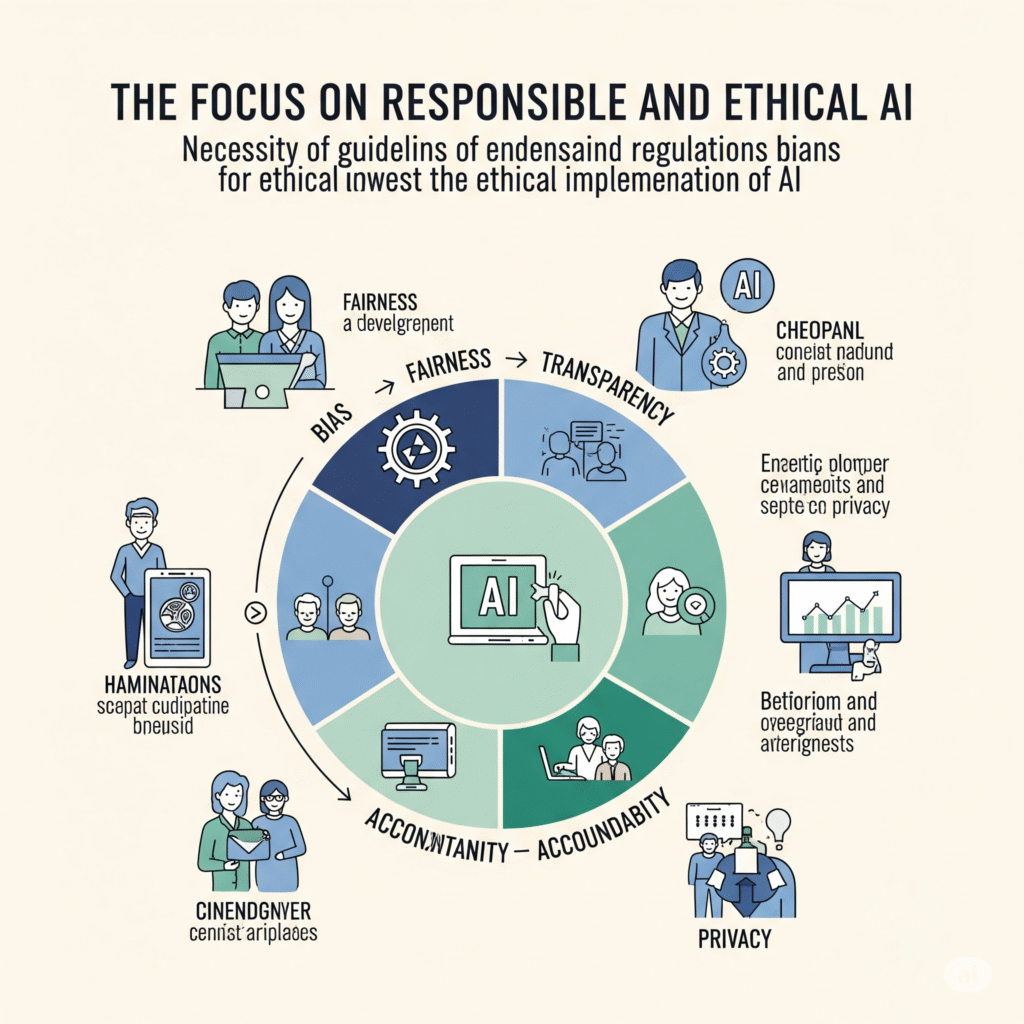
5. Edge AI: Bringing Intelligence Closer to the Data Source
Edge AI is an increasingly important trend that involves processing AI algorithms locally on devices, such as smartphones, IoT sensors, and autonomous vehicles, rather than sending data to the cloud for processing. This approach offers several key advantages, including lower latency, which is crucial for real-time applications; improved privacy as data remains on the device; and reduced bandwidth consumption as less data needs to be transmitted. Edge AI is enabling more intelligent and responsive devices and is critical for applications like autonomous driving, smart cities, and industrial automation.
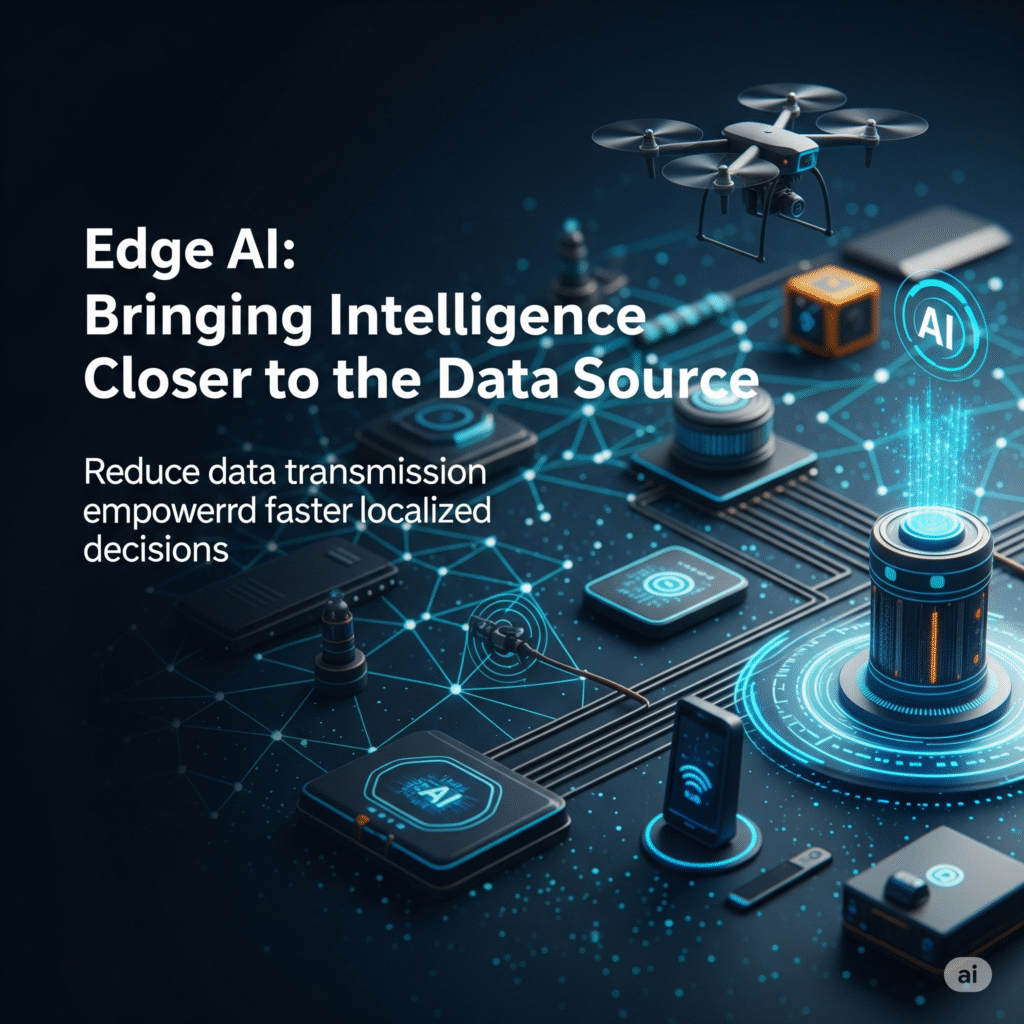
Looking Ahead: The Future of AI
These are just some of the exciting AI trends shaping our present and future. As AI continues to evolve at a rapid pace, we can expect even more transformative developments in the years to come. Staying informed about these trends is essential for navigating the evolving technological landscape and harnessing the power of AI for innovation and progress.
What are your thoughts on these latest AI trends? Share your opinions in the comments below!
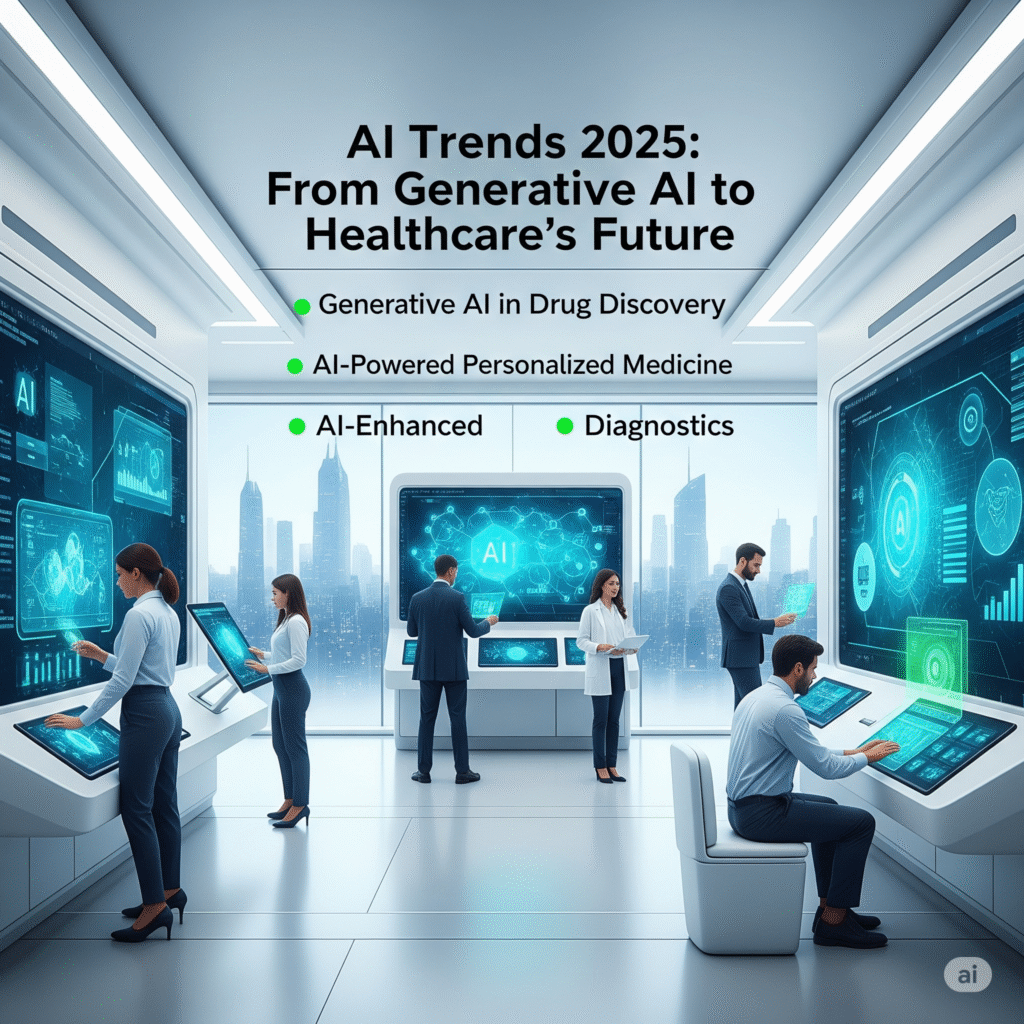
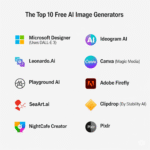
I love how the post touched on AI’s role in healthcare. AI-powered diagnostics are already changing how doctors approach patient care, and I’m excited to see what innovations come next. One thing I’d like to see is better regulation to ensure that AI remains beneficial without compromising privacy.
best information